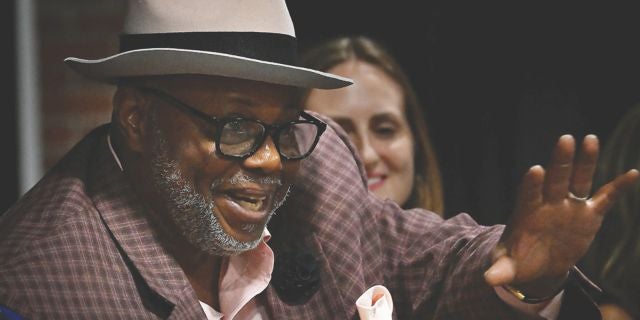Natchezians react to showing of Tribeca-winning Natchez documentary
Published 9:35 pm Friday, August 22, 2025
1 of 10
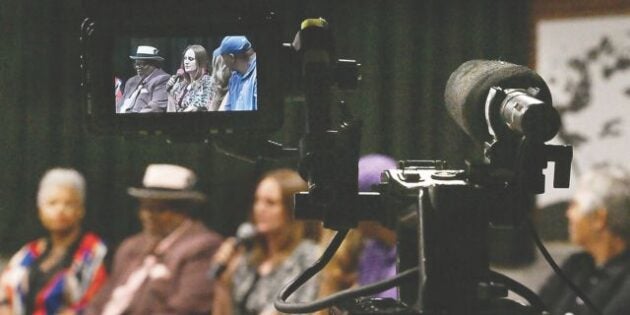
Natchezians in the documentary Natchez tell audience members about the making of the film. (Ben Hillyer | The Natchez Democrat)
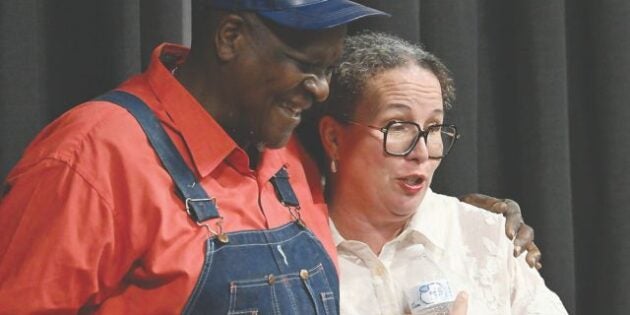
Producer Darcy McKinnon talks with Wharlest Jackson Jr. before the screening of the film. (Ben Hillyer | The Natchez Democrat)
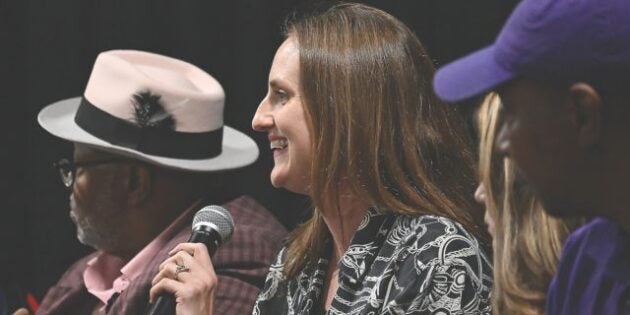
Director Suzannah Herbert talks while, from left, the Rev. Tracy Collins, Tracy McCartney and
Barney Scoby Jr. listen. (Ben Hillyer | The Natchez Democrat)
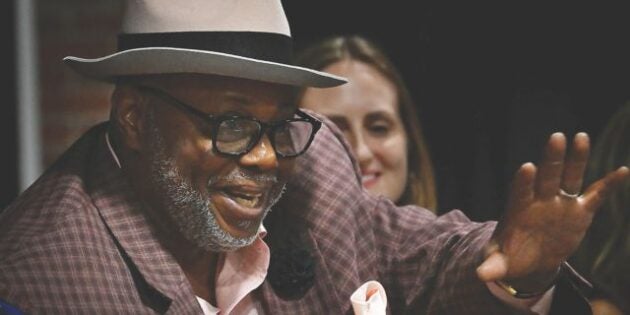
Tracy Collins talks about his experience in the film as Director Suzannah Herbert laughs in the background. (Ben Hillyer | The Natchez Democrat)
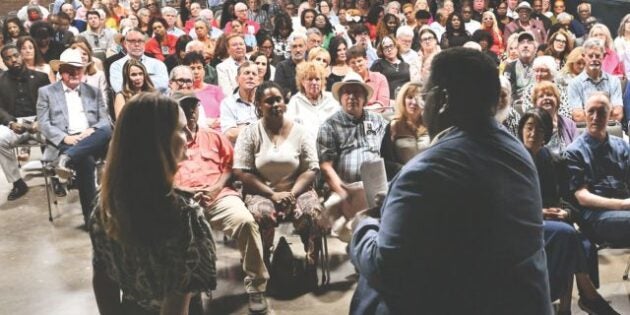
The crowd listens as panelists talk about the documentary process. (Ben Hillyer | The Natchez Democrat)
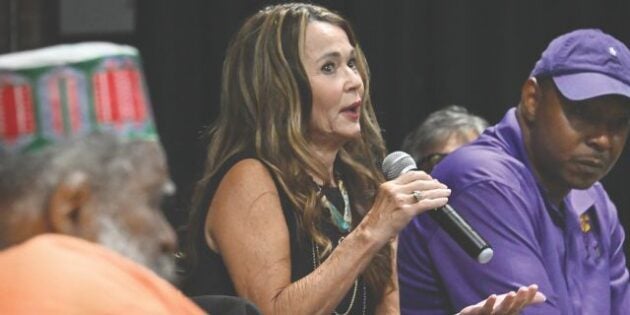
Tracy McCartney discusses the film after its presentation. (Ben Hillyer | The Natchez Democrat)
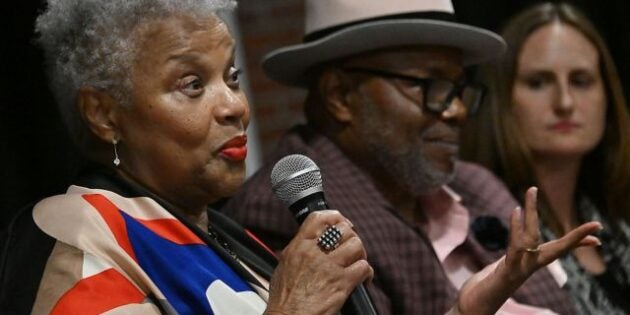
Deborah Cosey, who owns Concord Quarters, talks about her role in the documentary. (Ben Hillyer | The Natchez Democrat)
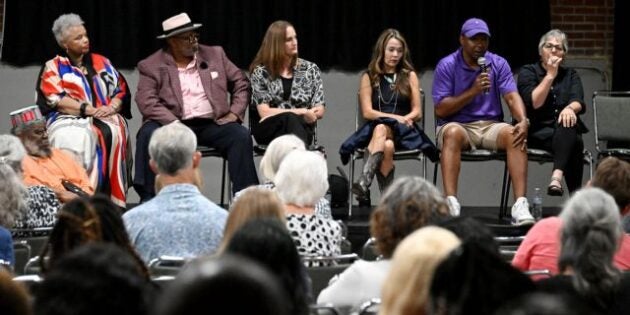
The crowd listens as panelists talk about the documentary process. (Ben Hillyer | The Natchez Democrat)
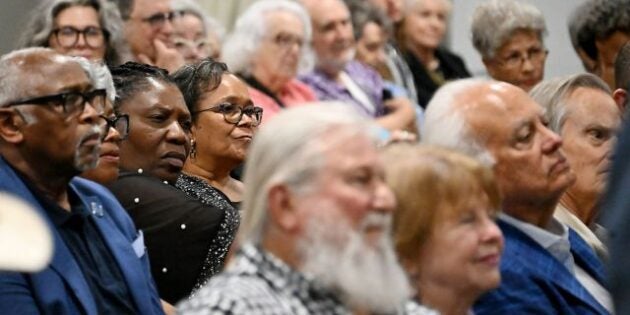
Audience members listen to the panel discussion following the showing of Natchez, the documentary. (Ben Hillyer | The Natchez Democrat)
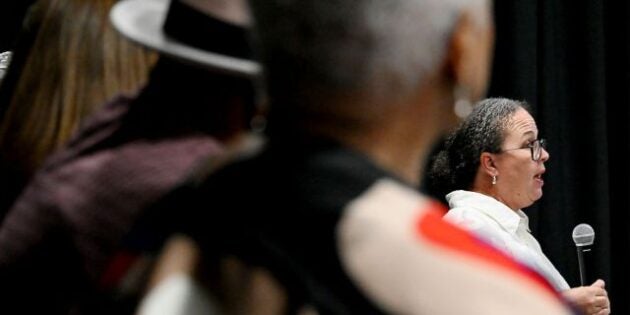
Panelists listen as Producer Darcy McKinnon discusses the film. (Ben Hillyer | The Natchez Democrat)
NATCHEZ — The much-anticipated showing of the Tribeca Film Festival-winning Natchez documentary drew 300 people to the Natchez Civic Center Thursday evening.
Director Suzannah Herbert and Producer Darcy McKinnon, both southerners by birth, spent parts of 2023 and 2024 filming in Natchez exploring how slavery is dealt with by those who tell the history of the area to visitors in a city where tourism is the largest economic driver.
Sometimes funny and sometimes shocking, the film paints a picture of a community that is struggling to learn to tell its entire story and to break away from its “Where the Old South Still Lives” image.
Amy Alderson-Allen, along with her partner, Tracy Alderson-Allen, own The Big Muddy Inn and Blues Room at 411 N. Commerce St., Natchez. Amy was among those who saw the movie Thursday.
“As an outsider who just moved here in 2022, I was so happy to be in that room surrounded by Debbie (Cosey) and Tracy (Collins) and all the people I have met along the way who were in the documentary,” Alderson-Allen said.
“The Rev. (Tracy Collins of Rev.’s Country Tours) touched my heart by what he’s trying to teach all of us. What he is teaching us is the truth, and not what we were taught in school. We need the truth so we know what not to do,” she said.
“I had the privilege of meeting Debbie at a Pilgrimage Garden Club. She has my heart. What Debbie is trying to do is so important. The only time I got emotional was during her comments at the end about why she does what she does and telling her story. I was very moved by her.
“The parts that could strike a nerve from the movie — I don’t want to give an opinion about,” she said. “As a business owner, I am waiting to see how or if the movie affects tourism here. I hope that people are intrigued enough to come see Natchez for themselves. I hope that’s what this documentary does.”
Royal Hill Jr. and his wife Lavada Miller Hill operate Open Arms Tours. They were at the showing Thursday.
“I thought the movie was great. It will be a good working tool to begin conversations and to be able to be transparent,” Hill said.
“I was shocked at the reality of the film, the transparency. It was real. I think it will be a great thing for Natchez. It opens up conversations. It showed the reality of where we are and who we are. It brings out our characters as individuals and our expectations as individuals,” he said.
“From a tourist’s perspective, from an outsider’s perspective, it would bring about whether or not I would come here and the expectations I would have in coming here. There are some who still have the expectation of the romanticism of the Old South. But for Gen Xers and Gen Z, they want information, but they also want experiences,” Hill said.
“One other thing as it relates to the film: When we look at those individuals, it gives indications about how people evolve or don’t evolve. We live through our children. What is it they say, ‘The apple doesn’t fall far from the tree.’ It reflects what we teach our children,” he said.
Natchez Mayor Dan Gibson, who is featured in the film, was not at the showing Thursday. Gibson was out of state on economic development business and was unavailable for comment.
One of the most shocking and disturbing parts of the film comes near the end when David P. Garner, who owns Choctaw Hall with his partner Lee Glover, uses racist language and statements during a tour of his house.
The two issued a written apology for Garner’s behavior.
“In 2017, David was diagnosed with Parkinson’s disease, a progressive neurological disorder which was known to the director. Lesser recognized, even to me at the time of the filming, are the side effects of the medication, which I now see: hallucinations, disinhibitions and sudden emotional outbursts and behavior problems especially when tired, agitated or triggered,” Glover said.
“Due to David’s disability and the side effects of his dopamine replacement therapy medication, David will no longer participate in tours or public appearances. All presentations at Choctaw Hall will be made by me with full awareness and sensitivity to the full story context,” he said.
“David and I would like to sincerely apologize for the pain and embarrassment the statement has caused to our community and our fellow cast members. And especially to everyone involved in the vibrant tourism and hospitality industry, working with respect and enthusiasm to tell the whole story of Natchez from our complicated roots to our bright future.
“We do want to go on record and state that David and I do not endorse or condone the representation depicted in the film and I made it very clear to Director Suzannah Herbert of my disgust at the private screening,” Glover said. “This incident underscores the crucial responsibility of documentary filmmaking. All people, but especially individuals with disabilities, deserve to be represented with care and dignity.”

